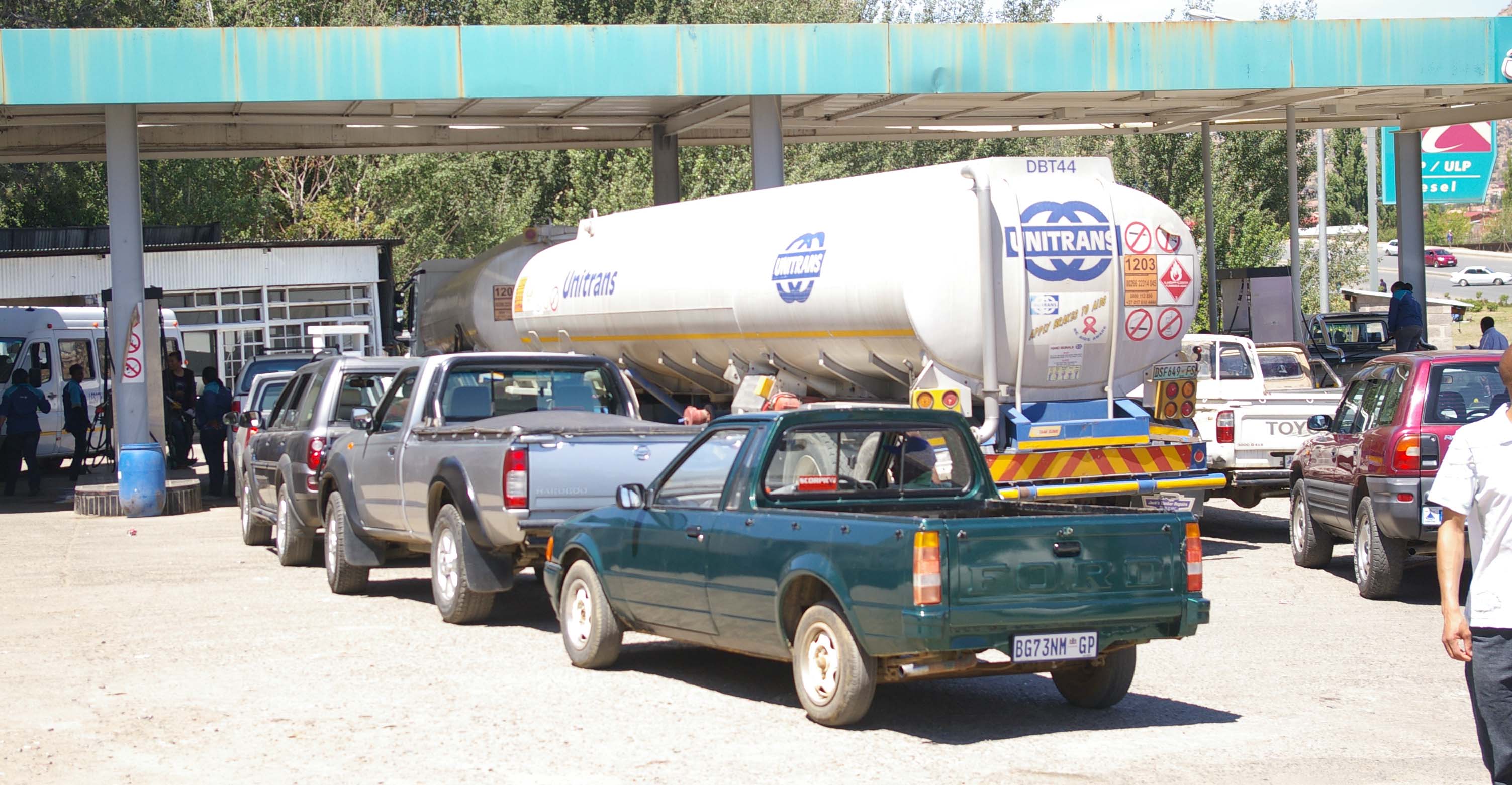. . . as higher fuel prices increase transport costs
Bereng Mpaki
THE latest fuel price increases which resulted in the price of petrol going up by 75 lisente per litre are likely to push up the cost of living while at the same time increasing the price disparities for consumer goods in urban and rural areas.
Last week, the Petroleum Fund unveiled the new fuel prices, which also showed marked increases in the prices of both grades of diesel (up by 55 lisente per litre) and paraffin (up by 45 lisente per litre).
This means the new retail price of petrol is M9.35 lisente per litre, while consumers will pay M8.95 lisente per litre for diesel500 and M9.20 lisente per litre for dieasel50. The wholesale price of illuminating paraffin rose to M6.35 lisente per litre.
The changes in fuel prices play a significant role in determining what consumers pay for various goods and services.
It can only get worse for consumers in rural areas who already have to pay more than their urban counterparts mainly due to the greater costs associated with transporting goods further afield.
Consumers in most remote parts of the country have to part with M10 for a litre of paraffin which costs M8 in urban areas. The rural customer also pays more for airtime, with a voucher whose face value is M5 going for M6.
Private Sector Foundation of Lesotho (PSFL) Chief Executive Officer Thabo Qhesi attributed the price differences to the extra transport costs incurred in travelling to remote areas.
“There are a number of factors influencing price disparities between urban and rural areas, but I believe transport is a major one,” he said.
“This is because businesses operating in remote parts of the country have to include the cost of transporting the goods from wholesalers in urban areas.”
Mr Qhesi also noted that several districts did not have commercial ports of entry, which meant their goods travelled longer distances by road via ports in other districts.
“For example, traders in Mokhotlong and Thaba Tseka have to enter the country via alternative ports such as Caledonspoort and Maseru,” he said.
“The result, unfortunately, is the transfer of transport costs to the final consumer. Since fuel prices increased last Friday, this means that the cost of transport also increased for businesses and they will pass on the cost to consumers. Eventually, consumers in rural areas will be worse off than their urban counterparts.”
Mr Qhesi said the higher cost of operating a business, coupled with the lower spending power of people in remote areas, had been aggravated by retrenchments of South African-based miners in recent years. Resultantly, fewer businesses were opening branches in rural areas.
Lesotho Chamber of Commerce Industry (LCCI) General Secretary, Fako Hakane, concurred, saying the low competition among traders in rural areas was also contributing to the higher prices of goods and services.
“Due to the low numbers of traders in the remote places, there is low price competition and, therefore, there is no pressure to lower prices.”
Mr Hakane said the poor state of access roads also contributed to the wear and tear of vehicles which was factored in the total costs of transportation. He said this could be rectified through proper planning of human settlements with relevant infrastructure to support businesses.
“As things stand, it is very difficult to operate a business in remote parts of the country because settlements are scattered widely, posing a serious challenge for entrepreneurs,” Mr Hakane said.
“It would be easier to set up businesses that provide efficient and cheaper services to customers if the settlements had been planned as clusters.”
Meanwhile, the Ministry of Small Business Development, Cooperatives and Marketing says there are no mechanisms for price control in Lesotho after these were abolished in the 1990’s to encourage free market system. A competition policy is being drafted to oversee price control among other things.


